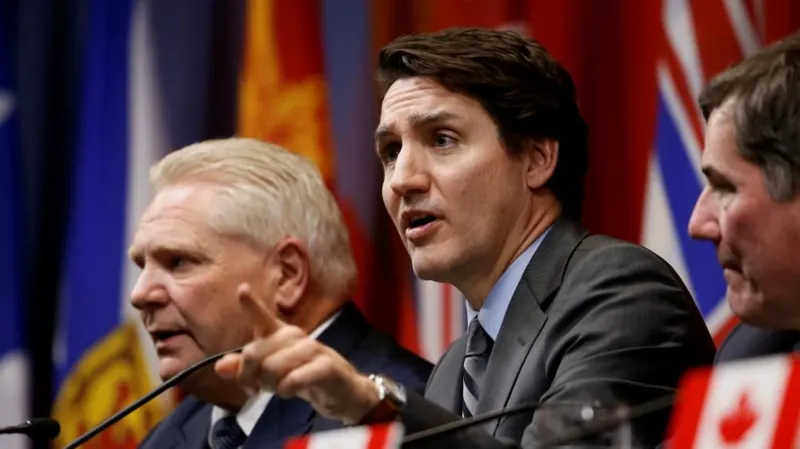Canada is ready to use any method to fight back against a possible 25% tariff from the U.S., leaders said, just days before the new rules might take effect. But there’s some disagreement among Canadian officials about whether to involve energy supplies in this trade dispute.
Prime Minister Justin Trudeau and provincial leaders met to discuss how Canada should respond to the threat. Trudeau promised that “nothing is off the table” and pledged to protect Canadians and their economy. He also assured industries affected by the tariffs that the government would provide support if the tariffs go through.
The U.S. tariffs, pushed by President-elect Donald Trump, are meant to pressure Canada into tougher actions on illegal immigration and drug smuggling into the U.S. However, Canadian officials argue that these tariffs would hurt both countries. According to BBC reports, experts say Canadian industries, especially those exporting goods to the U.S., would take a heavy hit, but American consumers could also face higher prices on everyday items like gas.
About 75% of Canada’s exports go to the U.S., so losing this trade could seriously harm the Canadian economy. Estimates suggest that Canada’s GDP could shrink by as much as 5.6%, while the U.S. GDP might drop by around 1.6%. Trudeau highlighted that Canada needs to respond smartly since retaliating could also harm their economy.
Not everyone in Canada agrees on the best response. Alberta Premier Danielle Smith refused to support federal countermeasures like energy tariffs or cutting off energy exports to the U.S. She argued that such actions would hurt Alberta’s economy, which relies heavily on oil and gas production.
On the other hand, leaders from provinces like Ontario and Quebec are open to using energy exports as leverage, especially since Canada provides 40% of the crude oil processed in U.S. refineries.
This tariff fight adds to Trudeau’s political challenges. He announced that he would step down as prime minister in March after his party chooses a new leader.
With elections expected this year, possibly by spring, Canada is preparing for a tough battle both politically and economically.
BBC noted that this situation highlights the complexities of managing trade relationships under Trump’s leadership style, which is often unpredictable and focused on quick decisions.
The tariffs are still uncertain, but both countries are bracing for the impact. As the BBC pointed out, this dispute could reshape how Canada and the U.S. handle their trade and energy ties in the future.
Credit : BBC
https://www.bbc.com/news/articles/cwy7xe32n50o

